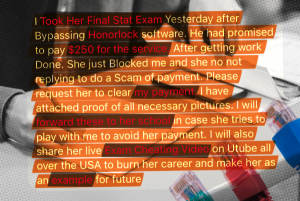Assessment of student learning is a crucial component of the education system, as it helps educators gauge the progress and understanding of their students. However, with traditional assessment methods often falling short in accurately measuring student learning, many argue that the current system is broken.
One of the main criticisms of traditional assessment methods is their heavy reliance on standardized tests. These tests, often administered in a one-size-fits-all format, fail to take into account the diverse learning styles and needs of individual students. As a result, students who may excel in other areas of learning are unfairly disadvantaged by these tests.
Furthermore, standardized tests tend to focus on rote memorization and regurgitation of information, rather than critical thinking and problem-solving skills. This can lead to a narrow and superficial understanding of the material, as students are taught to simply memorize facts rather than truly engage with and understand the content.
In addition, the emphasis on high-stakes testing puts immense pressure on students, leading to heightened stress and anxiety levels. This not only detracts from the overall learning experience but can also have negative effects on students’ mental health and well-being.
Another issue with traditional assessment methods is their inability to provide timely and meaningful feedback to students. Many assessments are graded solely on a right or wrong basis, without providing students with the opportunity to learn from their mistakes and improve. This lack of formative feedback hinders the learning process and prevents students from reaching their full potential.
In light of these shortcomings, there is a growing consensus among educators and researchers that the current system of assessment is in need of reform. Alternative methods, such as project-based assessments, portfolios, and performance tasks, are being increasingly recognized as more effective ways to measure student learning.
Project-based assessments, for example, allow students to demonstrate their understanding of a concept by applying it to real-world scenarios. This not only engages students in meaningful learning but also provides a more authentic measure of their knowledge and skills.
Portfolios, on the other hand, offer a comprehensive view of a student’s progress over time, showcasing their growth and development in a particular subject area. By compiling a collection of their work, students are able to reflect on their learning journey and take ownership of their education.
Performance tasks involve students completing a task or project that requires them to apply their knowledge and skills in a practical setting. This hands-on approach not only assesses students’ understanding of the material but also helps them develop critical thinking and problem-solving abilities.
By incorporating these alternative assessment methods into the education system, educators can better measure student learning and provide more meaningful feedback to help students succeed. Moving away from the reliance on standardized tests and embracing a more holistic approach to assessment is essential in creating a more equitable and effective learning environment for all students.



